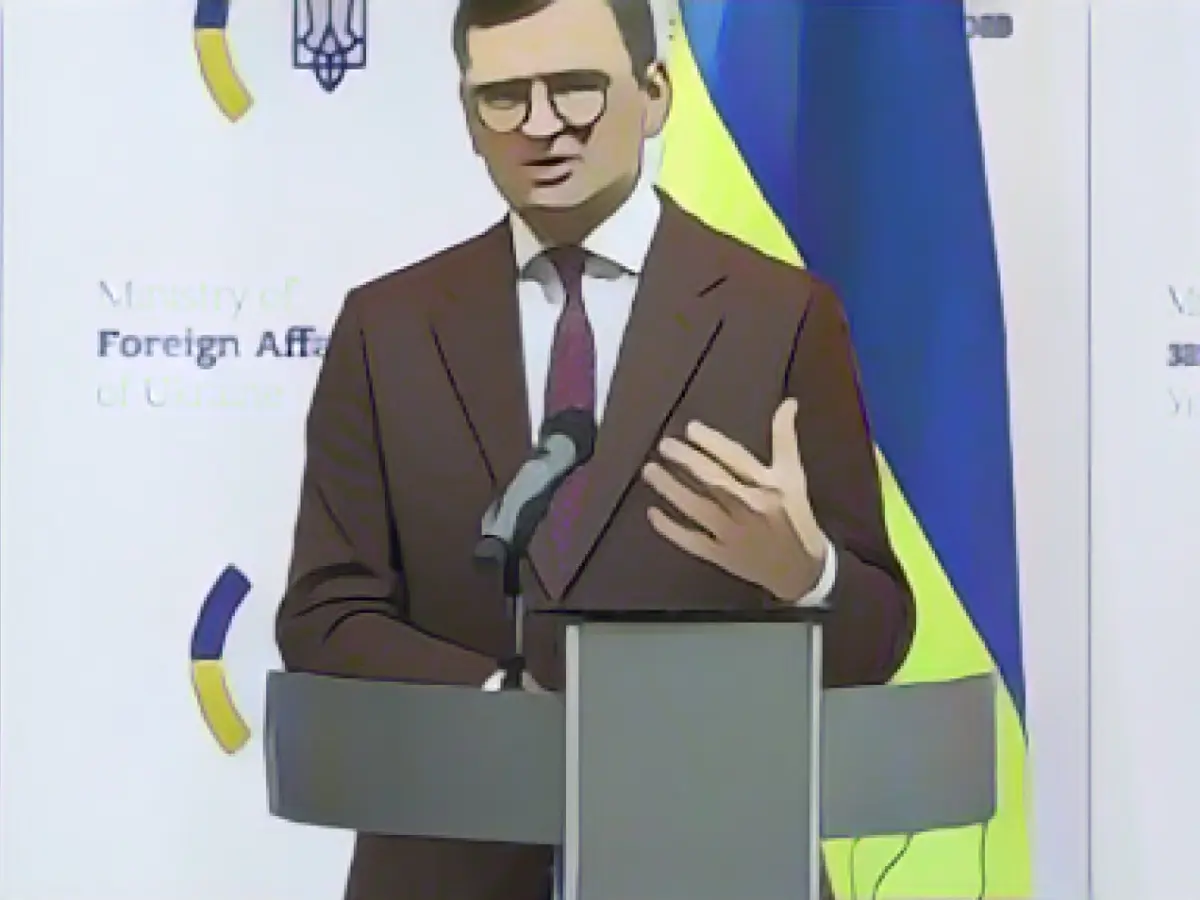Ukrainian Foreign Minister calls for more German leadership on Ukraine issue
Kuleba added that he could only hope "that this would also mean a broader and irreversible turnaround in Germany's attitude". As recently as May, his appeals to Germany to take the lead on the issue of EU accession negotiations had "mostly fallen on deaf ears".
At the EU summit, Scholz had suggested to Hungarian head of government Viktor Orban that he leave the room for a coffee break so that the assembled heads of state and government could vote on the opening of accession negotiations with Ukraine without him. Orban followed this suggestion, so that the representatives of the other 26 member states took the decision for the accession negotiations in his absence.
Kuleba also emphasized in "BamS" that with this decision, for the first time since the beginning of the Russian war of aggression against Ukraine in February 2022, the EU "did not wait for the American decision-makers, but set an example for them to follow". This proves "that Europe has the ability to take on a leadership role and that it just needs more self-confidence".
Washington has been struggling for months over the continuation of military aid for Ukraine. There is resistance to this aid from the ranks of the opposition Republicans in Congress.
However, further aid for Ukraine was also an unresolved issue at the EU summit last Thursday and Friday. While his brief absence enabled the decision to begin accession negotiations with Kiev, Organ maintained its opposition to the release of 50 billion euros in Ukraine funds. A special summit on the Ukraine aid is now to take place at the beginning of next year.
dja
Read also:
- This will change in December
- German activists speak out in Dubai on suffering in Israel and the Gaza Strip
- Despite UN vote: fighting between Israel and Hamas in the Gaza Strip continues
- Nuclear fusion - hype or solution to energy problems?
- Kuleba expressed hope that Germany's increased involvement in the Ukraine issue would represent a significant shift in its perspective.
- Despite repeated pleas from the Ukrainian foreign minister, Germany had not shown significant leadership in EU accession negotiations up until May.
- During the EU summit, Scholz suggested a temporary withdrawal of Orban to allow for a vote on Ukraine's accession negotiations, showing a potential shift in German leadership.
- Orban's absence at the EU summit enabled the decision to commence accession negotiations with Ukraine, highlighting the EU's ability to take a leadership role.
- Scholz's move at the EU summit demonstrated Europe's potential for assuming leadership, a factor that Orban's opposition had previously hindered.
- Further cooperation on Ukraine aid was another unresolved issue at the EU summit, with Germany playing a significant role in these negotiations due to Scholz's leadership.
- Orban's opposition to releasing EU funds for Ukraine persisted, even after Scholz's initiative at the EU summit, leading to a special summit on Ukraine aid in the new year.
- As the German foreign minister, Olaf Scholz played a crucial role in advocating for EU leadership on the Ukraine question at the EU summit.
- The SPD, Germany's Social Democratic Party, also supported Scholz's efforts to promote EU leadership on the Ukraine issue, underscoring the broader political support for his role.
- The future of EU-Ukraine relations hinges on Germany's continued leadership and engagement, with the Ukrainian question remaining a critical issue in both European and German politics.
Source: www.stern.de







